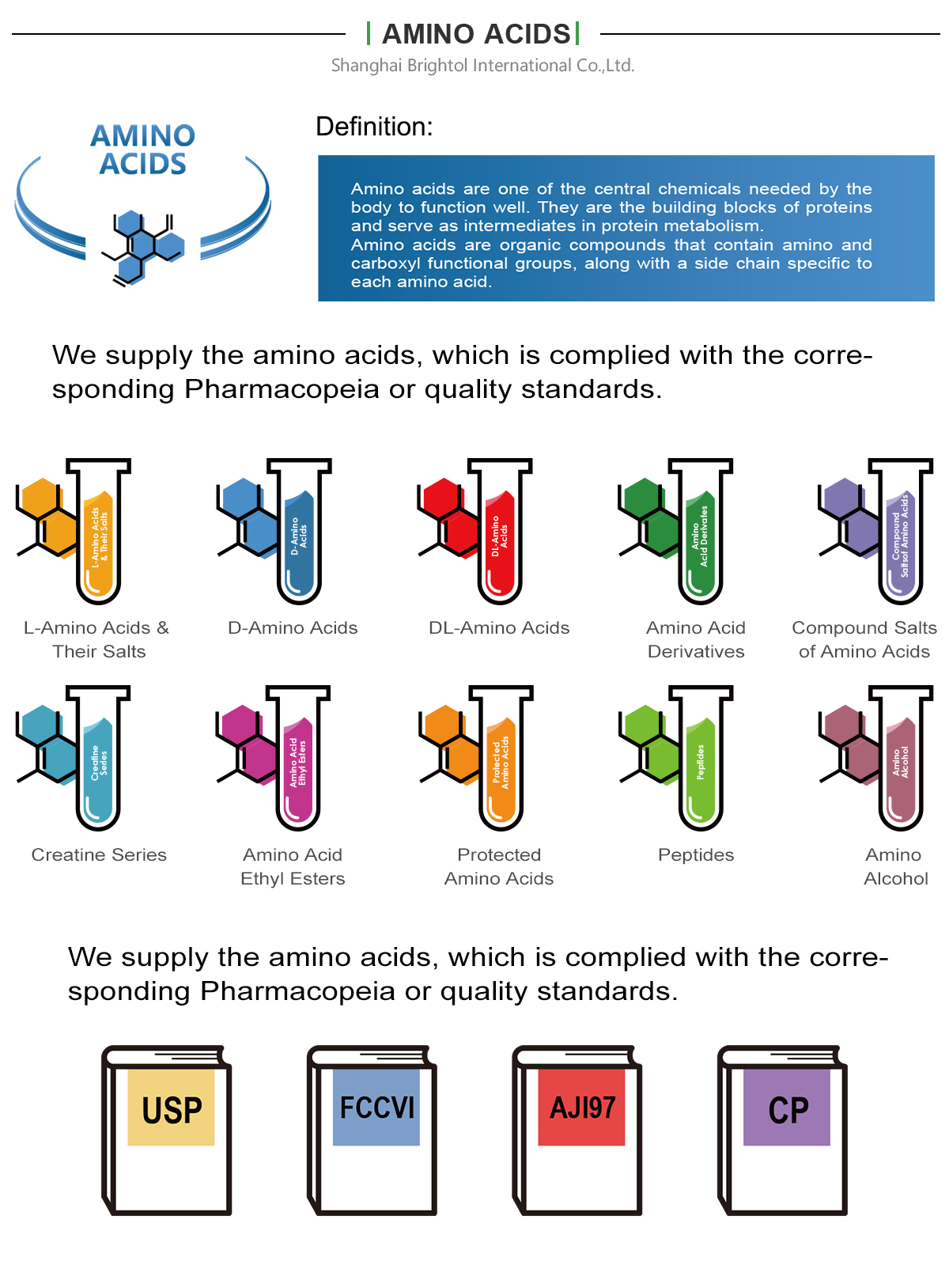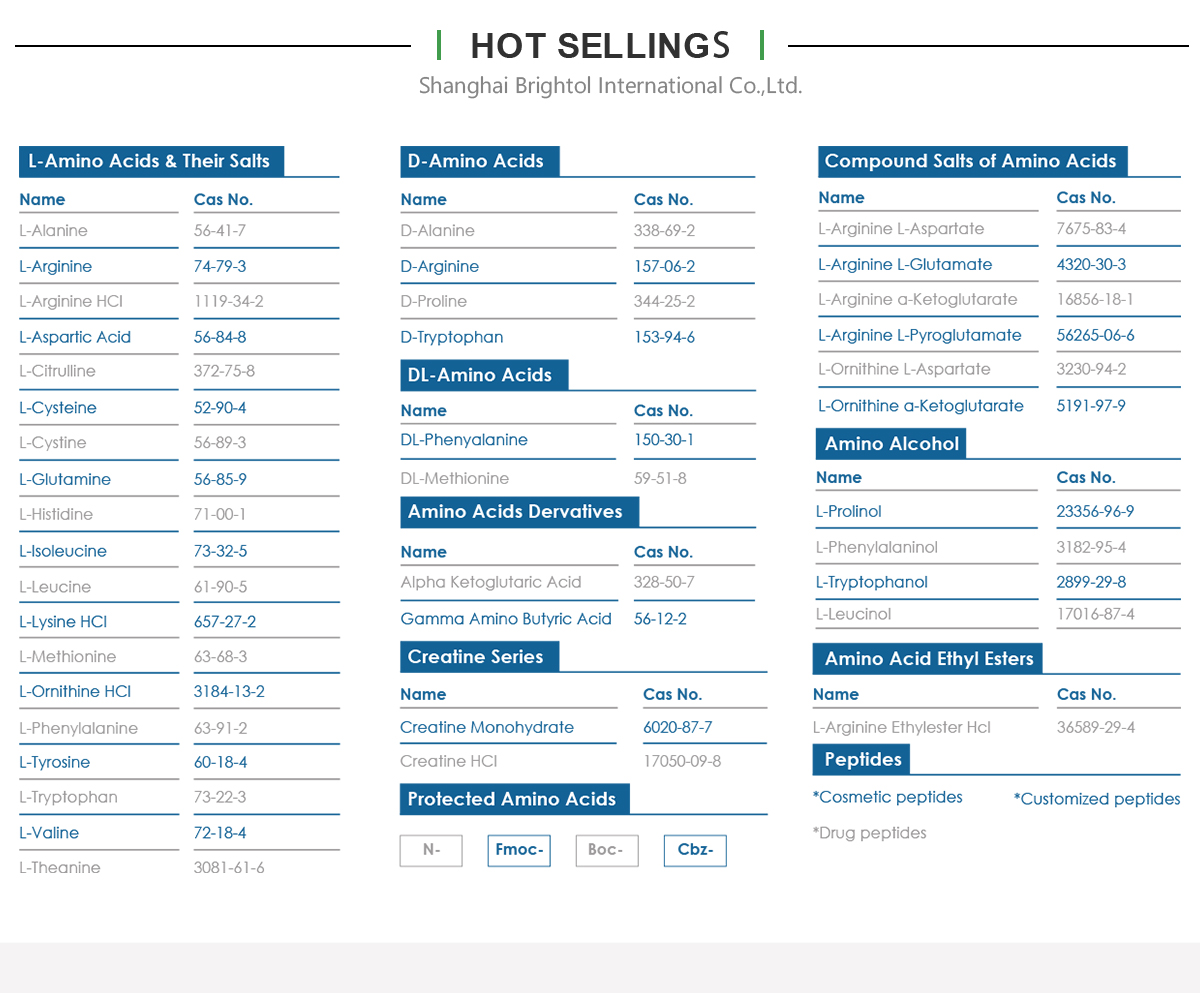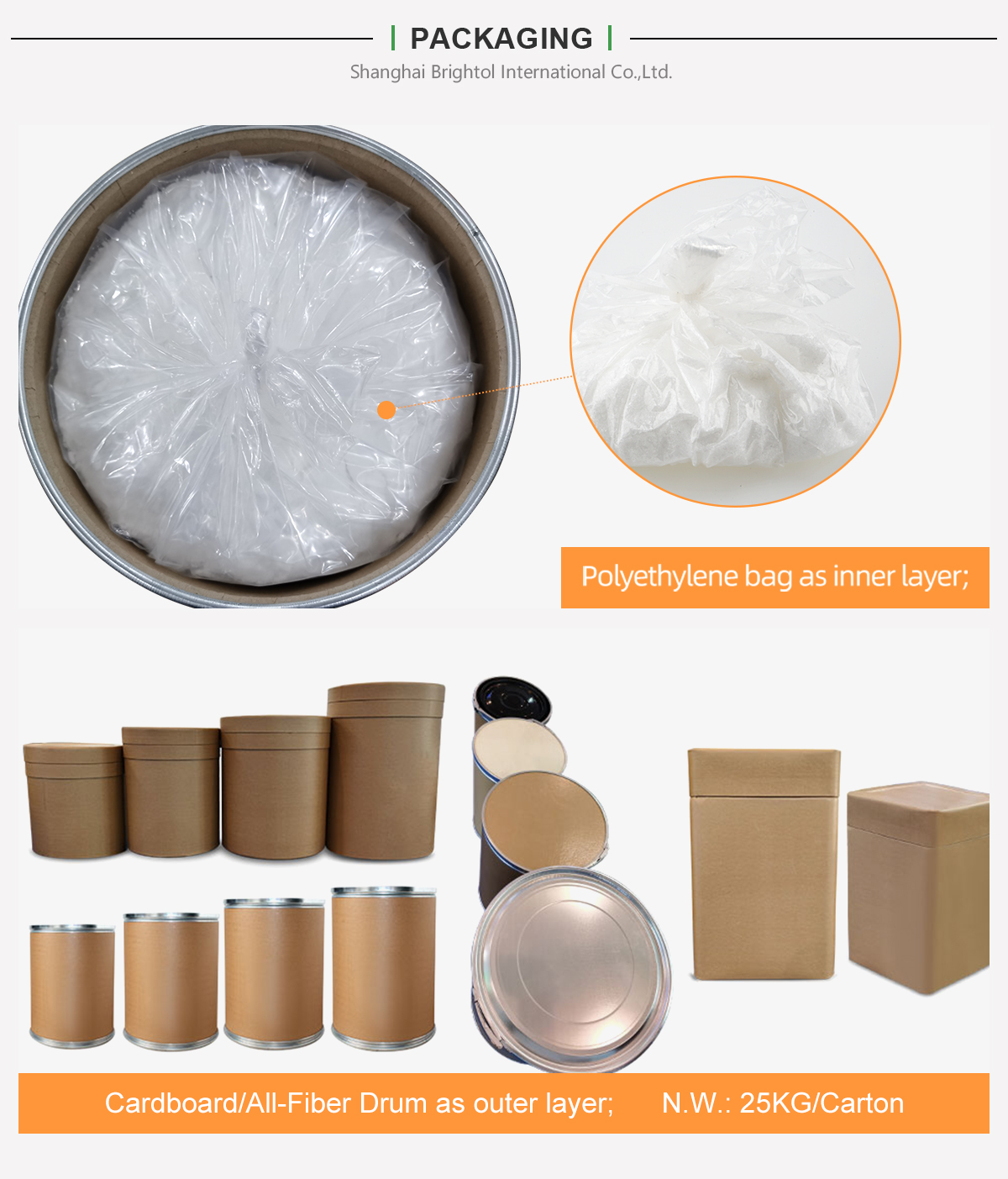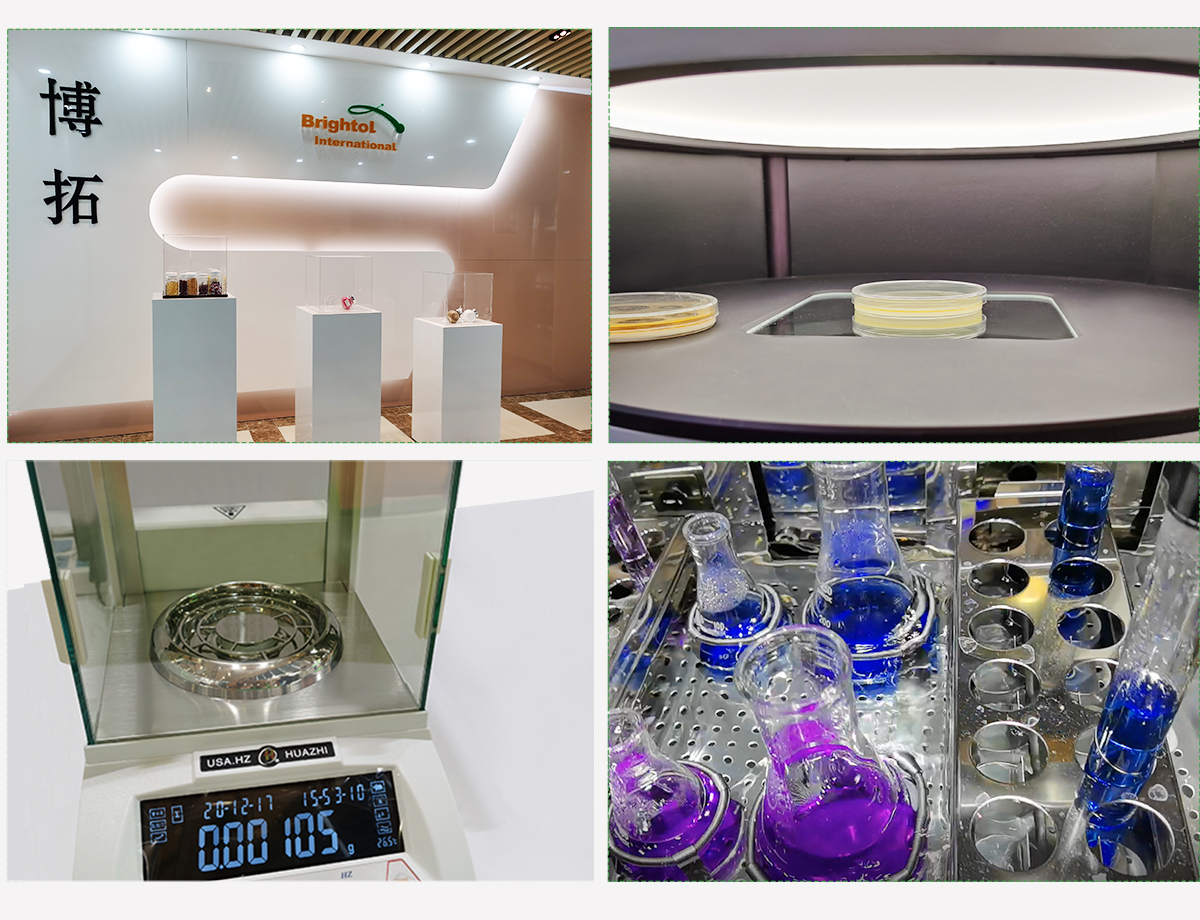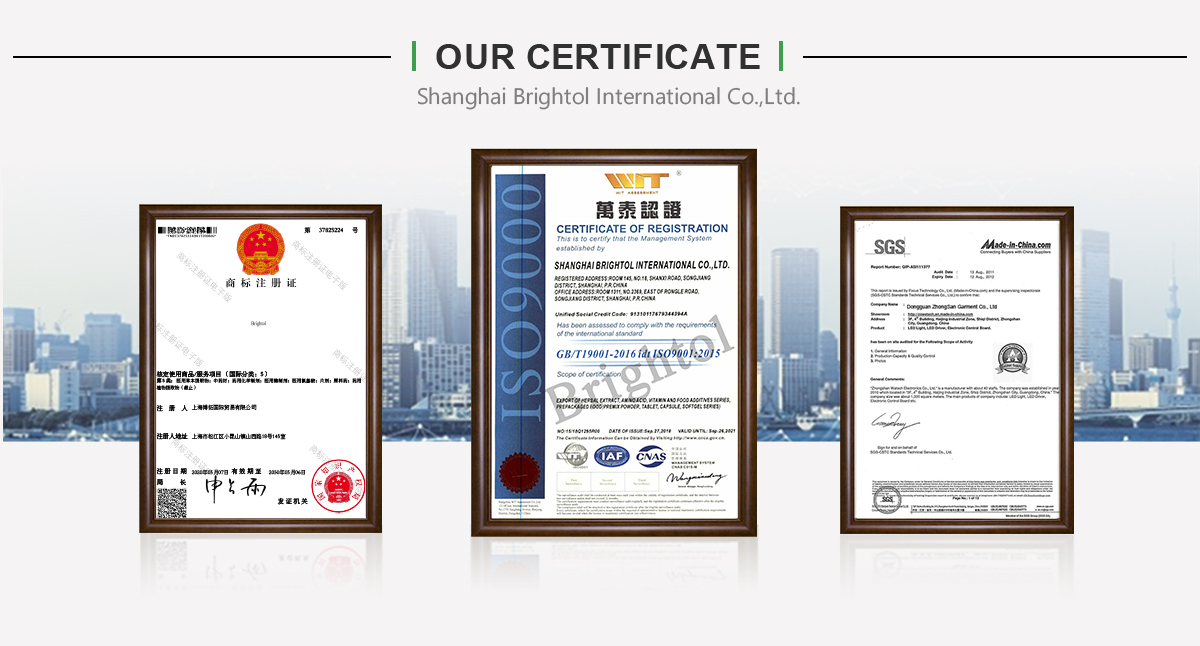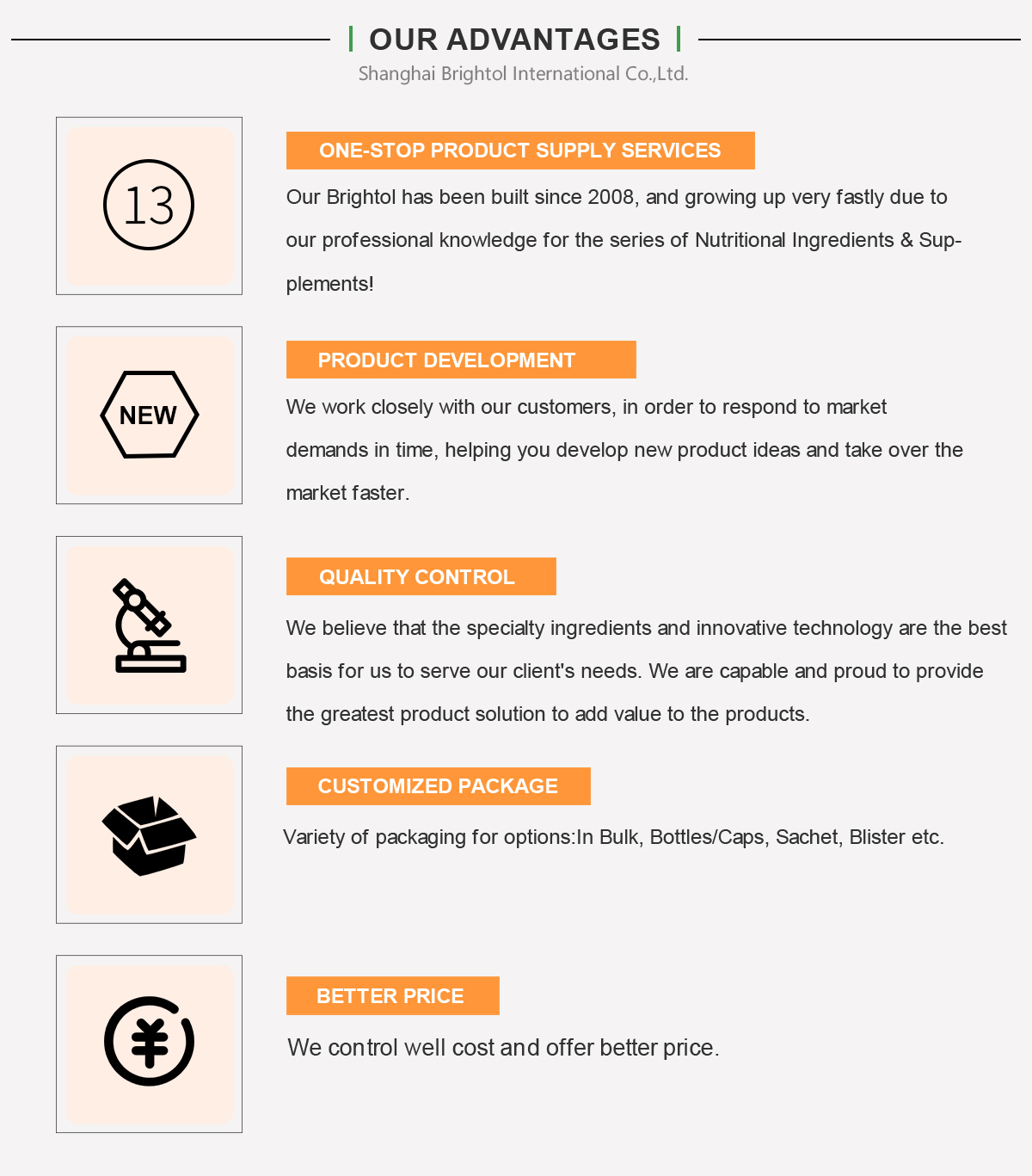

Product Name: L-Citrulline
Synonyms: L(+)-2-Amino-5-ureidovaleric acid;
(S)-2-Amino-5-ureidopentanoic acid
Molecular Formula: C6H13N3O3
Molecular Weight: 175.19
CAS No.: 372-75-8
EINECS: 206-759-6
Description
Citrulline, also commonly referred to as L-citrulline, is a non-essential amino acid. It’s considered non-essential because your body makes it on its own, specifically in the liver and intestines. It also exists in some foods, including watermelon, where it was first discovered. The name “citrulline” comes from the Latin “Citrullus,” which translates to watermelon.
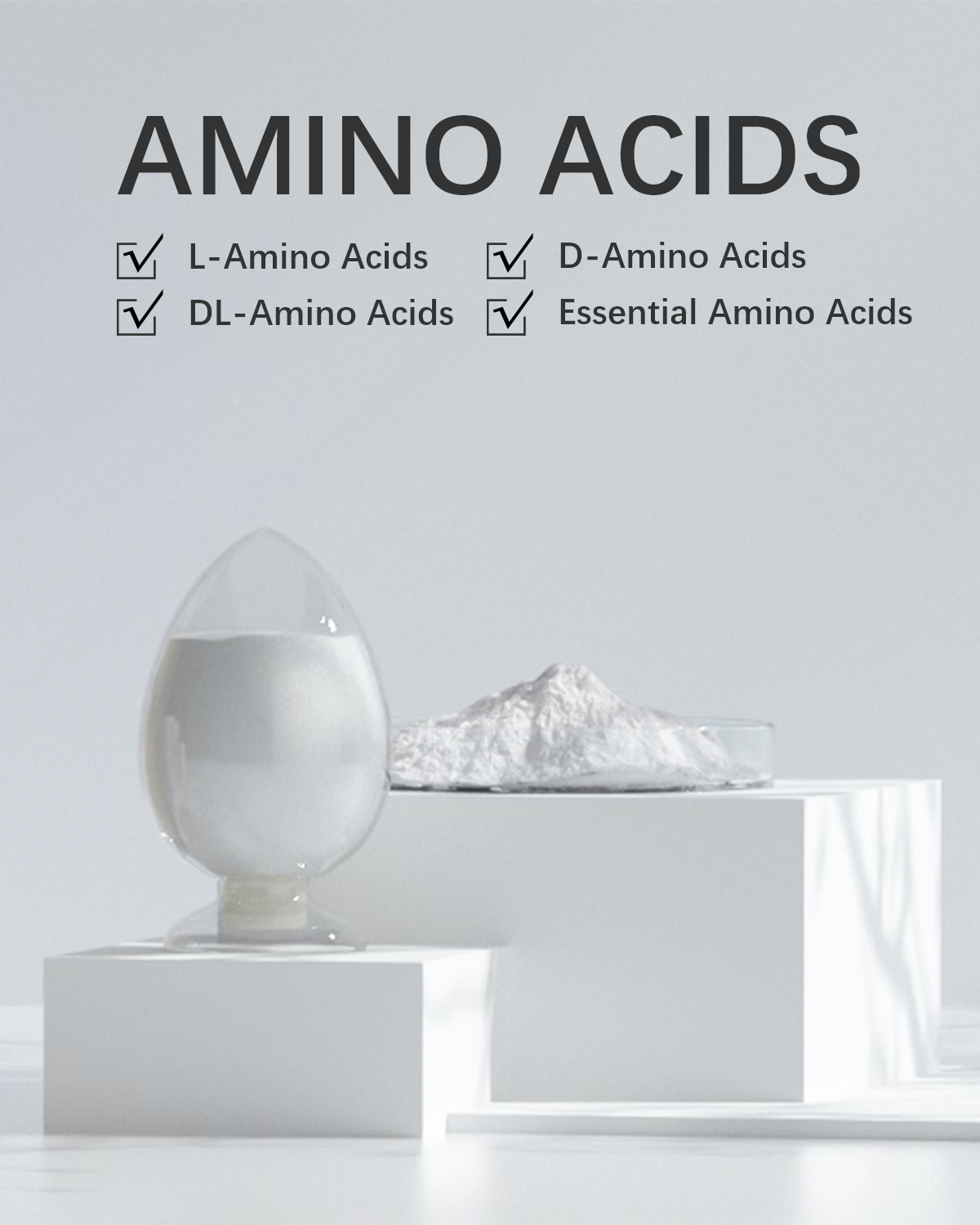

Product Name: L-Citrulline
Synonyms: L(+)-2-Amino-5-ureidovaleric acid;
(S)-2-Amino-5-ureidopentanoic acid
Molecular Formula: C6H13N3O3
Molecular Weight: 175.19
CAS No.: 372-75-8
EINECS: 206-759-6
Description
Citrulline, also commonly referred to as L-citrulline, is a non-essential amino acid. It’s considered non-essential because your body makes it on its own, specifically in the liver and intestines. It also exists in some foods, including watermelon, where it was first discovered. The name “citrulline” comes from the Latin “Citrullus,” which translates to watermelon.
Unlike other amino acids, citrulline doesn’t build proteins. Instead, it plays an important role in the urea cycle, helping your body to get rid of harmful substances, particularly ammonia. It also plays an important role in widening your blood vessels (vasodilation) and may play a part in muscle building.
While the human body makes citrulline, some people increase their numbers by eating foods with the nutrient in them. Some people may also take citrulline supplements to improve athletic performance. Supplements go by a couple of different names: L-citrulline and citrulline malate. Citrulline malate is a mix of citrulline and DL-malate, a compound that may help turn food into energy.
Benefits
While citrulline is necessary for the urea cycle, it also has a few other benefits as well. One of the biggest benefits associated with the amino acid is that it promotes vasodilation, the widening of your blood vessels. Current studies show that single doses of the nutrient don’t appear to have any impact. Long-term use, however, has shown to provide results for those with, or at risk for, heart disease.
